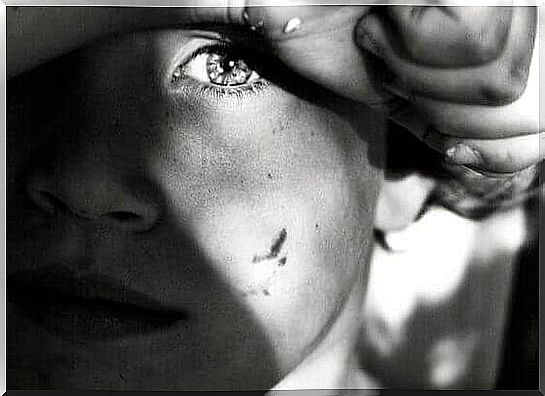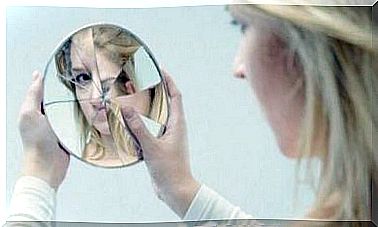How Can A Child Survive In A Dysfunctional Family?
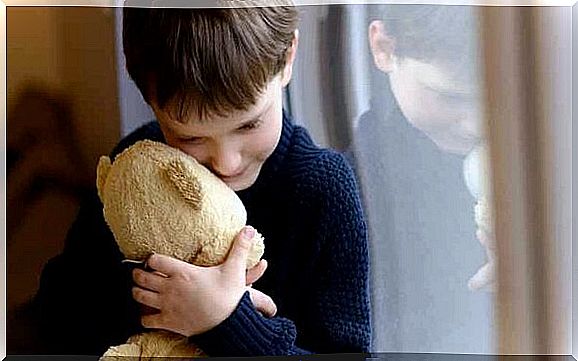
Growing up in a dysfunctional family can leave wounds with serious consequences for later life. But these types of families are much more common than we think. Emotional manipulation, humiliating behavior, lack of empathy and sensitivity, communication problems and addiction. All of these are characteristics that point to a dysfunctional family.
Children, when they grow up in a home like this, have to adapt in order to survive. They do it to protect themselves from an environment that is far from ideal. In addition, they observe dysfunctional behavior patterns that they are likely to mimic when they are adults.
5 types of roles
As we have said before, it is common to find dysfunctional families. Therefore, it is also quite normal for children to have learned to learn to adopt different roles. These roles allow the child to either protect themselves or submit to the things going on around them. There are 5 types of roles that children can play. Their choice will depend on the personality of the child and the type of dysfunctional family he or she grows up in.
The rebellious child – a child with behavioral problems who rebel against any form of authority. This child probably grew up in a home where the parents were separated or where they were abused.
The culprit – a child who has always been blamed and who constantly carries the guilt with him. This child has a negative concept of himself and has never been appreciated by his parents.
The little adult – this child has taken on the role of parents. They mature at an early age and do not live a normal childhood. Usually, their parents are emotionally immature and unable to take responsibility for their lives.
The unworthy child – a child whose needs are ignored and who has learned to suppress his feelings. As a consequence, they are usually shy and quiet. Their parents do not give them much attention, as they are probably concerned about their problems in the relationship. They think they are not worthy of love.
The manipulator – this child learns that they can get what they want with manipulation. Probably they have parents who do not know how to set boundaries and who are not very interested in them either. They prefer to give them a video game or candy just so they will leave them alone.
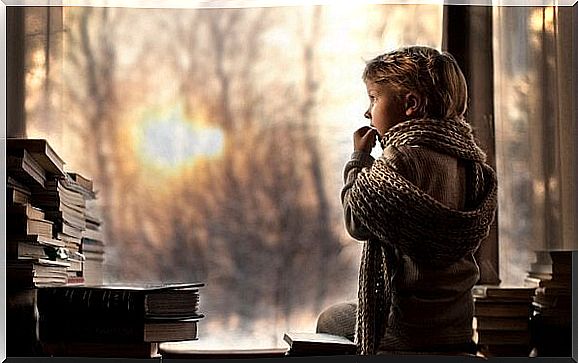
Growing up in a dysfunctional family
Parents often say that they have difficult or rebellious children that drive them crazy. What they do not understand is that this is a demand for love, attention and appreciation.
Maybe some of us can identify with some of these roles. Maybe we subconsciously adopted them when we were still very young, and when we still did not understand life or relationships. Each of these roles develops according to how our family behaves and how they make us feel.
In a dysfunctional family, parents often point the finger at the youngest children, classifying them as problematic. They complain that they are selfish. But the truth of the matter is that the problem always starts with the parents. These adults have not learned, or have been taught, how to relate to others in a healthy way.
Children begin to learn dysfunctional behavior patterns that they will reproduce in the not too distant future. Let us take the example of a child growing up in a dysfunctional family where there is abuse and addiction. Their parents are immersed in their own problems, and they receive no attention from them, and they feel guilty. This child is likely to acquire the “role” of not being worthy.
Consequences for the future
In the future, what kind of relationship can they expect to have? Most likely, they will be in relationships where they will suffer, because they will feel that they have no choice. Even if they end up with someone who abuses them, it is likely that they will end up enduring this bad treatment, because they learned that this is the usual way to relate to people.
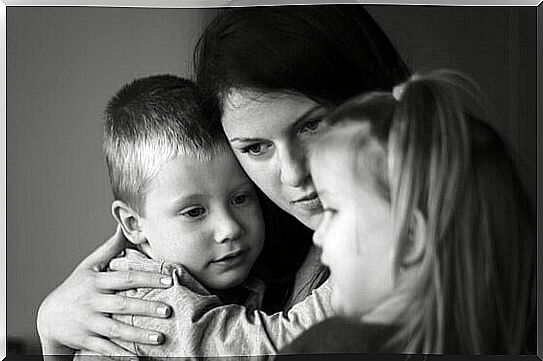
And what about their relationships at work or their friendships? Their lack of self-confidence and their constant feelings of guilt will make them feel responsible for their own mistakes, and also those of others. That’s why they’ll probably end up being a perfectionist.
The family is the environment where the children grow up, and this is where they must learn to relate to others. If we do not bother to improve our conditions, solve the communication problems that may exist or set a better example to the youngest members of the household, what do we do? We maintain harmful patterns of behavior that will cause them much suffering.
